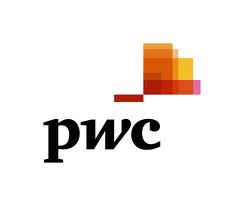PwC Provides Technical Expertise for New "Scope 3" and Product Life Cycle Carbon Accounting Standards
Oct 12, 2011 1:10 PM ET
Campaign:
PwC US Corporate Responsibility
(3BL Media / theCSRfeed) New York, NY - October 12, 2011 - Two new standards for accounting and reporting greenhouse gas (GHG) emissions, developed in part with the technical leadership of PwC, were launched by the World Resources Institute (WRI) and the World Business Council for Sustainable Development (WBCSD). Known as the GHG Protocol Corporate Value Chain (Scope 3) and the Product Life Cycle standards, the new standards will increase the scale and scope of current GHG management and reporting processes. PwC provided technical expertise on GHG emissions accounting and assurance, guided clients and partners on assurance requirements and contributed to each standard's chapter on assurance.
"To remain relevant and competitive in today's marketplace, we are finding more companies taking action to address climate change," said Kathy Nieland, U.S. Sustainable Business Solutions Leader at PwC. "Through our participation in the development of the standards, PwC recognizes and deeply understands the importance of these new standards in increasing transparency and support for corporate value chain reporting." The release of the new standards comes just weeks after the Carbon Disclosure Project released its 2011 S&P 500 Report, finding more leading companies are integrating issues of climate change into overall business strategies. The two standards – the Corporate Value Chain (Scope 3) and the Product Life Cycle standards – will enable stakeholders to better understand the impacts of a company's business operations through greater completeness, consistency, accuracy, transparency and relevance of reported GHG emissions. These standards will be of particular interest to companies in the aerospace and defense, auto, entertainment, media, and communications, industrial products, information technology, retail and consumer and utility industries. Whereas Scope 1 and Scope 2 focus on the emissions generated directly by the company and within a company's control (e.g., within its facility boundaries), the Scope 3 Standard will impact companies with extended upstream supply chains, leased and franchise operations or where downstream product use creates emissions. By developing a full corporate GHG emissions inventory – incorporating Scopes 1, 2 and 3 – companies are able to understand their full value chain emissions impact and focus on the greatest GHG reduction opportunities. Companies may increasingly be held responsible for activities they influence, not just what they own and control. In fact, according to the Carbon Disclosure Project annual reports, 214 companies of the S&P 500 reported emissions in 2011 based on previous versions of Scope 3 guidance, up from 174 in 2010. "At PwC, we work with businesses to help them gain better insight and knowledge on emerging reporting requirements, establish strategies for measuring and reducing these emissions and develop and implement processes and systems for reporting," added Nieland. "We help companies make smart business decisions, focusing on both the risks and opportunities, around their carbon footprint." Major influencers have already reported using previous versions of Scope 3 guidance. The new Scope 3 Standard defines requirements and provides guidance for those companies working to accurately and consistently report Scope 3 carbon emissions. This guidance will be helpful in both corporate and public sector emissions reporting. For example, the U.S. federal government requires all government agencies to measure, report and set Scope 3 emission reduction targets (U.S. Executive Order 13514, October 2009). And in February 2010, Walmart announced a goal to eliminate 20 million metric tons of GHG emissions from its Global Supply Chain and is collaborating with suppliers and environmental experts to develop, measure and independently assess Scope 3 carbon reductions (Walmart, 2011 Global Responsibility Report, www.walmartstores.com). The newly refined Scope 3 Standard has the potential to shape future government regulations, affecting both federal agencies and corporate America. Since 2008, WRI, WBCSD and PwC have collaborated in a multi-stakeholder standards development process that included input from business leaders, NGOs, academics and policymakers. More than 2,300 participants from 55 countries contributed to the process, and 60 companies road-tested the new standards. About PwC's Sustainable Business Solutions PracticePwC's Sustainable Business Solutions practice provides practical strategies to help businesses address strategic, compliance, operational, reputational and financial sustainability-related issues. Our global network of firms has more than 700 assurance, advisory, and tax professionals who are dedicated to providing sustainability and climate change business advice. Leveraging our deep industry knowledge, we help clients achieve sustainability goals, capitalize on efficiencies, mitigate risks, and find solutions that can lead to long-term profitability. To learn more, visit http://www.pwc.com/us/sustainability. About the PwC Network
PwC firms help organizations and individuals create the value they're looking for. We're a network of firms in 158 countries with close to 169,000 people who are committed to delivering quality in assurance, tax and advisory services. Tell us what matters to you and find out more by visiting us at www.pwc.com. © 2011 PricewaterhouseCoopers LLP, a Delaware limited liability partnership. All rights reserved. PwC refers to the US member firm, and may sometimes refer to the PwC network. Each member firm is a separate legal entity. Please see www.pwc.com/structure for further details. PWC17661

